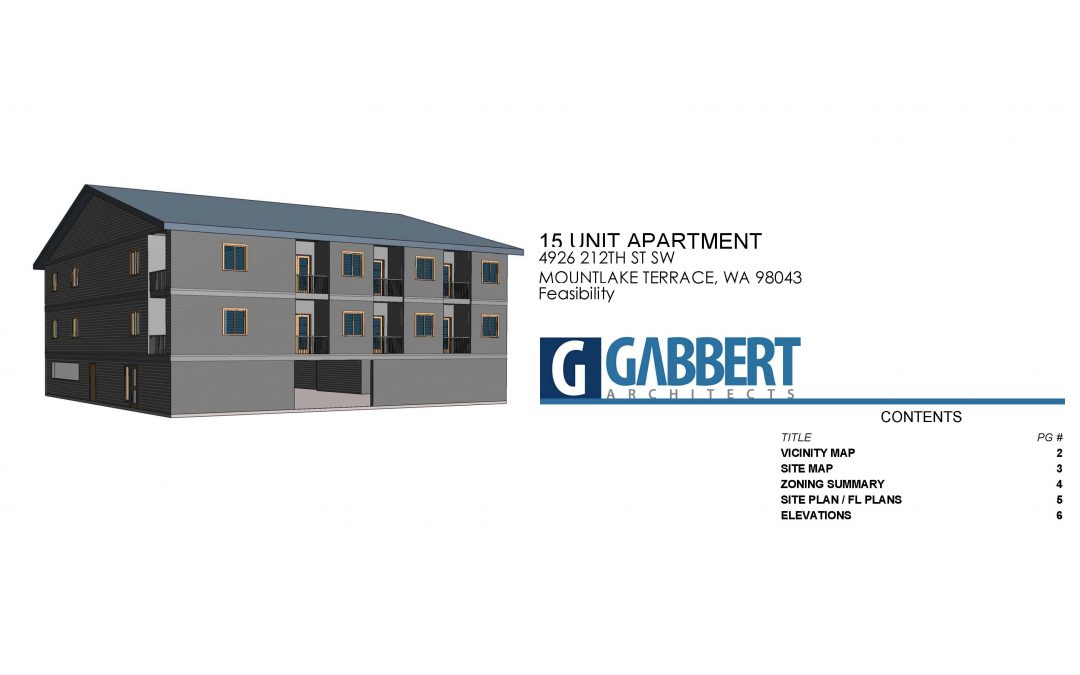We are coming out of a decade where interest rates were very low, as low as 2.5% per year. Rates are now up over 7.0%. This makes it hard for buyers getting new loans to qualify. When they do qualify, they qualify for lower loan amounts. This in turn lowers sale prices.
It appears that the higher rates are going to be the “new normal”.
In response to this situation some buyers are taking over sellers’ loans to take advantage of the seller’s low interest rate. Buyers can apply for formal assumption. Or buyers can pay the seller a down payment and informally assume or “wrap around” the seller’s existing 2.5% loan without notifying the seller’s lender. This is referred to as a “confidential closing”.
In a wrap-around transaction the buyer will give the seller a deed of trust mortgage and pay the seller each month. The seller will continue to make payments to the seller’s lender. The best way to deliver the payments to the lender is for the buyer to pay a collection agent, which will then pay the seller’s lender in the seller’s name. In most cases the seller and buyer do not notify the seller’s lender that there has been a sale.
Read more about the wrap-around deed of trust as a seller financing tool.
Seller-financing offers another advantage to buyers because it avoids the hassle of having buyers get a new loan. Qualifying for financing is tricky. Mortgage closing costs can really add up. There are only two parties to a seller-financed deal, buyer and seller, instead of the usual three parties. The lender is not there to rain on the parade. In romance two is company and three is a crowd. With buyer and seller and no new lender, the same is true in real estate transactions.
In a wrap-around transaction, at a much lower interest rate, the seller can get a higher sale price, while the buyer will get lower monthly payments.
The seller must decide how much the buyer is to pay as a down payment. The seller might require the buyer to pay the seller all of the seller’s equity in the property.
The seller must get to know the buyer and look into the buyer’s credit worthiness and reliability. There is some risk here because a buyer who fails to pay or pays late could negatively impact the seller’s credit rating. If the buyer fails to pay, the seller might have to make the monthly payments himself or foreclose on the wrap-around deed of trust.
If a buyer does not have a significant down payment or high credit worthiness, the deal might be structured as a lease with an option to purchase in a certain number of years.
Read more about lease-option transactions at this link.
Regarding credit score, I find there are frequently buyers who have bad credit or a recent bankruptcy, but who on the other hand have large amounts of cash to make a big down payment..
“Creative financing” is usually synonymous with “seller financing”, although “creative financing” is a broader term that can include formal assumption, informal assumption, wrap-around, or lease option.
Seller financing has been around for a very long time. Read about the recent history of creative financing or seller financing here.
Are you a seller having trouble selling your property for the price it would have commanded two years ago before rates went up? A big part of the problem is that buyers in general are having a hard time getting financing or qualifying for loans that are large enough. This is reducing the number of potential buyers willing to pay the seller’s asking price.
Maybe the property needs work and does not appraise for enough. Some buyers are “handy”, meaning they can accept the property as-is and do needed repairs. They might then qualify the property for refinance in a reasonable time.
Why not eliminate the new loan obstacle? Why not sell utilizing a lease-option or a wrap-around deed of trust or an assumption – with or without lender approval? Why make the buyer go get a new loan? Let the buyer use he seller’s existing loan.
Before 1986 almost all residential bank loans could be assumed or “wrapped around” or “taken subject to”. Before 1986 many states, including Washington and California, regarded due on sale clauses as “impediments to sale” or “restraints on alienation” and therefore void, at least as to residential properties. Read the case of Lipps v. First American Serv. Corp. for a good discussion of restraints on alienation.
Then in 1986 Congress passed the Garn St. Germain Act. The due-on-sale clause in paragraph 17 or 18 of your deed of trust became enforceable under federal law.
The customary due-on-sale language is as follows:
“Transfer of the Property or a Beneficial Interest in Borrower. As used in this Section 18, “Interest in the Property” means any legal or beneficial interest in the Property, including, but not limited to, those beneficial interests transferred in a bond for deed, contract for deed, installment sales contract or escrow agreement, the intent of which is the transfer of title by Borrower at a future date to a purchaser.
“If all or any part of the Property or any Interest in the Property is sold or transferred (or if Borrower is not a natural person and a beneficial interest in Borrower is sold or transferred) without Lender’s prior written consent, Lender may require immediate payment in full of all sums secured by this Security Instrument. However, this option shall not be exercised by Lender if such exercise is prohibited by Applicable Law.
“If Lender exercises this option, Lender shall give Borrower notice of acceleration. The notice shall provide a period of not less than 30 days from the date the notice is given in accordance with Section 15 within which Borrower must pay all sums secured by this Security Instrument. If Borrower fails to pay these sums prior to the expiration of this period, Lender may invoke any remedies permitted by this Security Instrument without further notice or demand on Borrower.
Many or most attorneys and real estate brokers are afraid to “go around” a due-on-sale clause. Most attorneys and brokers tell buyers they have to get new financing so the seller can pay off his or her loan. However, seller financing can work, although it has to be done carefully and with full disclosure to all parties. It helps if your broker is also an attorney.
Even if a lender calls in a loan based on the due-on-sale clause, the law spells out that the lender should allow the buyer to assume the loan if the buyer qualifies by customary credit standards. The rate on the assumed loan would be one that is below market but higher than the lower, current rate.
In the exercise of its option under a due-on-sale clause, a lender is encouraged to permit an assumption of a real property loan at the existing contract rate or at a rate which is at or below the average between the contract and market rates, and nothing in this section shall be interpreted to prohibit any such assumption. …
For any contract to which subsection (b) does not apply pursuant to this subsection, a lender may require any successor or transferee of the borrower to meet customary credit standards applied to loans secured by similar property, and the lender may declare the loan due and payable pursuant to the terms of the contract upon transfer to any successor or transferee of the borrower who fails to meet such customary credit standards.
The Code of Federal Regulations provides that if the buyer qualifies by customary credit standards and if the lender and buyer come to agreement on the new interest rate, the seller will be released from all liability on the loan:
Upon such agreement and resultant waiver, a lender shall release the existing borrower from all obligations under the loan instruments, and the lender is deemed to have made a new loan to the existing borrower’s successor in interest.
The 2008 recession reduced property values and repressed the real estate market. Many sellers gave up attempts to sell their properties and let them go into foreclosure. Short sales became common. A solution would have been for Congress to have suspended or relaxed the enforceability of due-on-sale clauses. Seventy percent of mortgages are owned by Fannie and Freddie, and they could suspend enforcement of Paragraph 18 of the standard deed of trust with the stroke of a pen. I wrote to President Obama about this. I also wrote to the president of Fannie, the president of Freddie, the secretary of the treasury, and the head of the FED. So far only Ben Bernanke responded. He like the idea but said it was outside his jurisdiction.
Many real estate brokers and attorneys are intimidated by the due-on-sale clause. They presume that the only option the buyer has is to obtain a new loan. Brokers usually work only with buyers who are pre-qualified.
However, bear in mind that the due-on-sale clause only gives the lender the right to call in the loan. The loan is not automatically due.
Further, I have been closing wrap-around transactions for many years. I have talked with many real estate attorneys and lenders about their policy on due-on-sale clauses. Not once, in all my conversations with other attorneys, brokers, and lenders has any lender ever called a loan due under a due-on-sale clause. The only exception is where there is another basis for default, for example, failure to pay payments.
Generally, mortgages get combined into large bundles and collateralized. They are converted into a stock issue. Investors buy shares in it the stock issue. Generally, lenders have no interest in calling in due-on-sale loans as long as payments are being made.
In a seller-financed deal that is set up properly the buyer will monthly payments to a collection service. The collection service pays the lender in the seller’s name and keeps a record of everything, the running balance, any late payment penalties, and the payoff amount. The collection service might hold an executed full reconveyance.
If you are a frustrated buyer, especially one having trouble getting financing, tell your broker to look for a seller who will carry the balance. You are more likely to find a willing seller if you work through a broker. When your broker finds a willing seller, tell your agent to call me. I will help him “land the airplane”. I would be glad to serve as your buyer broker.
You might find a seller on your own, and if you do, contact me and I will write up the deal and get it through escrow.
Bear in mind that VA and FHA loans are assumable, provided that the buyer proves credit worthiness by customary credit standards, which may be less strict than standards for new loans. A possible reason for the reduced strictness is that the seller is not released from liability, which means the lender will have two parties “by the hind leg” and liable to pay the mortgage.
If you are a broker working on a deal, don’t be shy about calling. The phone number is 425-774-6611 ext 1. If I am not available ask for attorney Matthew Parker whose phone number is 425-774-6611 ext 2.
I generally handle the escrow as well as advise and represent the buyer or seller. I am available to put on seller-financing seminars at real estate offices.
I give brokers, buyers, and sellers by telephone, giving a free initial consultation. I want to know if I can help people before I ask them to sign a contract and pay a retainer. I generally charge $3,000 for handling the escrow. In addition, I generally charge $300 per hour to set up the transaction. A typical legal fee is $3,000 to $4,000.
Creative financing, seller-financing, wrap-around mortgages, lease-option deals work for residential property, second homes, rental houses, commercial property, apartment buildings, and building lots.
When a buyer and a seller find each other and want to buy and sell using creative financing, buyer or seller or broker should bring in a real estate lawyer to write up the deal and see that it gets closed properly and safely and to make sure that everyone gets full disclosure. These creative financing deals are complicated and it takes technical expertise to write them up. I have lost count of how many of these wrap-around deals I have written or reviewed or escrowed.
The selling broker and buyer broker normally write up deals for no extra charge. Brokers are authorized to write purchase agreement if standard forms will cover all the issues. Broker errors and omissions insurance will not cover brokers if they go past standard, lawyer approved forms. But with seller-financing, there are no standard forms. Each deal is different. A lot of issues have to be addressed. Brokers have earned their commission when they bring buyer and seller to the point where they have reached a basic oral agreement. It is not the Broker’s duty to write up a complex deal. I advise brokers to write up the deal as best he can on standard forms and include language such as this:
At this stage this is a non-binding, good faith letter of intent, which shall become binding when it is reviewed and rewritten by a real estate attorney and signed by buyer and seller.
I then take over. It is my job to add the technical details, identify and address all issues, and get the deed, note, deed of trust, lease-option agreement, collection account agreement, and other documents drafted and escrow the transaction.
The buyer or seller can hire me and pay me a fee to draft creative financing documents. They can select me as the escrow agent. Or I can work as co-listing or co-selling broker. I can do that because I am also a licensed real estate broker. This may not necessarily cost the broker anything. The seller might agree to raise the commission enough to cover my fee. Under that arrangement I might take all or part of my fee at closing.
Whether I work as listing or selling broker or as listing co-broker or selling co-broker, I am representing my client both as attorney and real estate broker. The party which hires me is getting the services pf a real estate co-broker and a real estate lawyer.
When there is another attorney involved, I work with that attorney to find a workable strategy and explain to him or her why I believe a creative financing transaction would be reasonable and safe. I urge the party I am not representing to get legal counsel.
I am only licensed to practice in Washington. If your property is in another state, and if you still want to hire me, you would also need to hire co-counsel in your state who will “sponsor” me.
Disclosure: In all cases I make it clear that I am not making a guarantee that the lender will not call the loan due, although, again, I know of no instance where a lender has called a loan due based solely on the due-on-sale clause. In all cases I insist that the buyer agree that if the loan is called due that the buyer will refinance or sell the property and hold the seller harmless. Many or most buyers are investors, and generally they have the financial ability to refinance or sell the property if a lender might call the loan due.
I make sure that the buyer and seller sign a statement reassuring the title company that title insurance does not include coverage against the possibility that the lender might call the loan due based on the due-on-sale clause.
Read what attorney William Bronchick has to say about beating the the due-on-sale clause.
Read about Dodd-Frank restrictions as they might apply to seller financing.
Click here to sign up for my email list.
James Robert Deal, Broker and Attorney
Broker with eXp Realty
WSBA # 8103, DOL # 29770
425-774-6611
James@JamesDeal.com ![]()

Listing Broker Co-Brokerage Addendum
As both a real estate attorney and a real estate broker, I co-broker with other brokers, helping them to take more listings and service them better. This provides better service for sellers.

Quitclaim Deeds
What is a quitclaim deed? What is a statutory warranty deed? When should you use a quitclaim deed? When should you use a statutory warranty deed? When is excise tax owing on a transfer of title?

Buy Real Estate In Partnership
Interest rates jumped. Prices leveled off and got soft. Buyers over-reacted and stopped buying. Bad idea. It is time to be buying. You can make an offer without a dozen other buyers competing with you. So what if interest rates are up. What goes up must come down. And prices of real estate always trend upward over time.
Voltage Can Vary
Electricity can't be stored, so when I turn on a light, the power station must immediately produce some extra electricity. How is this possible?...

Become An Attorney Broker
James Robert Deal is both an attorney and a broker. Attorneys can become real estate agents and make more money and deliver better service as attorney brokers. Join The Deal Team with Keller Williams.

Final Walk Through on New Construction
The final walk through is important when buying a new home. Make a punchlist. Listed items can be changed after closing. Expect a final inspection one year after closing.
Commercial Mortgages
JAMES ROBERT DEALCOMMERCIAL MORTGAGE BROKER Not only am I a real estate managing broker (DOL # 27330) and a real estate attorney (WSBA # 8013), I am...
How Much Does Social Security Pay?
Why does Social Security pay so little in retirement? Jeanine Joy, Ph.D., CEO, Trainer, Speaker, Author, Researcher at Happiness 1st Institute...
Why you can sell homes in the winter
For Sellers, Move-Up Buyers, Selling Myths The #1 Reason to List Your House in the Winter · 2.1Kshares · 1.9K · 82 · 33...

4926 212th Street SW MLT 98043
Mountlake Terrace Planning has reviewed architectural plans for the construction of a 15 unit apartment with 17 parking spaces at 4926 212th Street SW Mountlake Terrace WA 98043 and has indicated approval subject to meeting a list of reasonable requirements.
4017 Colby Everett
JAMES ROBERT DEALREAL ESTATE ATTORNEYREAL ESTATE MANAGING BROKERCOMMERCIAL MORTGAGE BROKEReXP Realty 425-774-6611James@JamesDeal.com I am writing...
Are Rich People Mean? – How Much Is Enough?
Why Are Rich People So Mean? Call it 'Rich Asshole Syndrome'—the tendency to distance yourself from people with whom you have a large wealth...

Helping Other Brokers
I am a real estate broker and a real estate attorney. I help buyers, sellers, and other brokers throughout Washington. Call me at 425-774-6611 when your purchase or sale involves legal issues. I can often quote a flat fee payable at closing.
Vaccines Wear Off – Cannot Provide Permanent Protection – Cannot Produce Herd Immunity
Is MMR Vaccine a Fraud or Does It Just Wear Off Quickly? by Joseph Mercola, DO | Guest Writer Published May 8, 2018 | Vaccination, Risk &...
LED Street Lights Reduce Property Values – Harm Eyes – wear blue blockers
LED Street Lights Reduce Property Values - Harm Eyes wear blue blockers AMA adopts guidance to reduce harm from high intensity street lights ......
Cell Towers, Smart Meters, 5G – They All Depress Property Values
www.JamesRobertDeal.org/smart-meters Cell Towers, Smart Meters, 5G - They All Depress Property Values Cell Towers, Antennas Problematic for Buyers...
Nina Beety’s 50 page Smart meter hazards report
From James: Smart meters reduce the value of your property. They cause fires. Some damage caused by electrical surges are not covered by insurance....
Anti-vaxxer want informed consent and liberty
Anti-vaxxer want informed consent and liberty Ada Drinkwater, Wife mother grandmother great grandmother Liberty & informed consent are not only...
New York Times – Another Industry Captured Corporation – 5G Must Be Good Because Evil RT Warns It Is Unsafe
From James Robert Deal: Too much microwave radiation will make our cities and towns hard to live and work in. We will be fried by smart meters and...
Tetanus Vaccine – TDaP – No Proof Of Safety
The US Institute of Medicine concluded that the evidence is inadequate to accept or reject a causal relationship between the DTap vaccine and...
I just don*t thing being an adult is gona work for me
Please just overlook the atrocious grammar in three of these. They are not editable but they ARE too good to delete. Contentment is not the...
Sign In
CLICK HERE TOSIGN UP FOR A BETTER PROPERTY SEARCH TOOLYou will be asked for your email address and your telephone number.You do not have...
Buyer Broker Co-Broker Agreement
James Robert Deal co-brokers with other brokers on complex deals. This is a buyer broker co-broker agreement.
JR-Deal-NewZ-2-8-2019
Eliminate traffic congestion. James Robert Deal managing broker. Become a real estate agent.
Home Renovation Can Cost A Lot
Reality check: Don’t fall for these TV home renovation fibs Kitchen and bathroom remodels can cost more and take longer than HGTV shows lead you to...
Funny Mockery of Ineffective Government – From An Opponent of Single Payer
From James: Some points are valid. Some are not. But this is well written and sometimes funny. One of government’s problems is that elected...
IRS Provides Clear Test on How 20% Deduction Applies to Rental Income, Exchanges
Real Estate Calculations Every Investor Should Memorize
The Top 8 Real Estate Calculations Every Investor Should Memorize by Andrew Syrios | BiggerPockets.com...
An additional inspection can cut short the time for the original inspection
An additional inspection can cut short the time for the original inspection QUESTION: I’ve always been under the impression that when a buyer sends...
Ten Mistakes Investors Should Avoid
10 Lethal Mistakes to Avoid on Your First Real Estate Investment by Chad Carson | BiggerPockets.com...
How to Make Earnest Money Non-Refundable
Click here if you are having trouble viewing this message. Weekly Membership Newsletter JANUARY 8, 2019 • Stay Connected! QUESTION: I have been...
4 Different Types of LLCs and the Ways They Pay Taxes
4 Different Types of LLCs and the Ways They Pay Taxes by Scott Smith | BiggerPockets.com...
Why I Walked Away from a 118-Door Apartment, 10 Essential Real Estate Team Members & What to Do When Your Tenant Gives Notice
Support Our Sponsors: For Accredited Investors Only. Syndicator of multifamily investments, Ashcroft Capital. Co-founder, Joe Fairless,...
Home Inspection Questions
What Buyers Should Ask After a Home Inspection October 9, 2018 After an inspector has finished a home report, buyers may feel overwhelmed by any...
Door Knocking to Find Real Estate Sellers
29 Door Knocking Resources for Successful Lead Generation Posted by REDX January is the perfect time to door knock. Most people wait until the...
Radio – 9-16-2018 8 PM Eliminating Traffic Congestion 9 PM Buying Real Estate in Partnership – James Robert Deal – Attorney Broker
JR-DEAL-NEWZ-9-16-2018 WASHINGTON POLITICS JAMES ROBERT DEAL, BROKER, ATTORNEY, ENVIRONMENTALIST, AMATEUR MUSICIAN Radio Program – Sunday, September...
How To Choose A Domain Name – by Saul Klein
Choosing Your Domain in the Age of Dot ANYTHING Written by Saul Klein Posted On Friday, 14 September 2018 13:00 ·...
Mistakes Sellers Make
5 Mistakes Home Sellers Make Written by David Reed Posted On Friday, 14 September 2018 21:56...
Small 5G Cell Towers in Neighborhoods Reduce Property Values
CITY COUNCIL DENIES APPEALS OF CELL TOWER INSTALLATION Sam Catanzaro , Santa Monica Mirror, August 31, 2018 Wireless carrier Sprint wants to install...

15605 Cascadian Way Bothell WA
15605 Cascadian Way Bothell Washington. $430,000. 3 bedrooms, 2 bathrooms. Buy on FHA Rehab Loan. Hold long term. Eventually sewers may be extended 400 feet, and then two homes, two duplexes or five townhouses can be built. James Robert Deal, Attorney and Broker, 425-774-6611.
Cell Towers Reduce Property Values
Survey by the National Institute for Science, Law & Public Policy Indicates Cell Towers and Antennas Negatively Impact Interest in Real Estate...
Reciprocal Easements by Prescription
Reciprocal Usage Easements? What is the Purpose? Many buildings that were constructed prior to the 1960s lacked adequate parking, and/or even...
There may be a short statute of limitations on your credit card debt
Shortening the Limitations Period on Credit Card Collection Lawsuits Jon Sheldon August 6, 2018 Print/Download Email link to this article CONTENTS ·...
The Downside of Smart Homes
The Downsides Of Selling A “Smart Tech” House Posted on August 4, 2018Natural Living · · · · · · ·...
Cancelling, Restructuring, Extending, Deferring, Rehabilitating, Consolidating Student Loans
Student Loan Repayment Rights: Consumer Debt Advice from NCLC Joanna Darcus August 2, 2018 Print/Download Email link to this article CONTENTS...
Where Americans Move To – Where they Moved From
Just a few years ago, experts indicated Americans (especially young Americans) were more interested in a different lifestyle than previous...
Selling FSBO Can Cost Sellers A Lot Of Money
Selling Your Home Solo to Save Money? You’ll Actually Make Less Than You Think Posted in Economist Commentaries, by Amanda Riggs on July 9, 2018 385...
Renew the National Flood Insurance Program (NFIP)
RENEW FLOOD INSURANCE BUT QUIT SELLING NEW COVERAGE AND QUIT BUILDING NEW HOMES IN FLOOD ZONES SEA LEVELS ARE RISING Can't read or see images? View...
Underwater Properties – Due to Climate Change
Climate Change Will Force the Poor From Their Homes Low-Lying towns and Homes in Washington will be affected too Alamy This story originally...

18809 65th Place W Lynnwood
18809 65th Place West Lynnwood WA 98036. This house has “good bones.” It needs fixup, cleanup, and your love.



